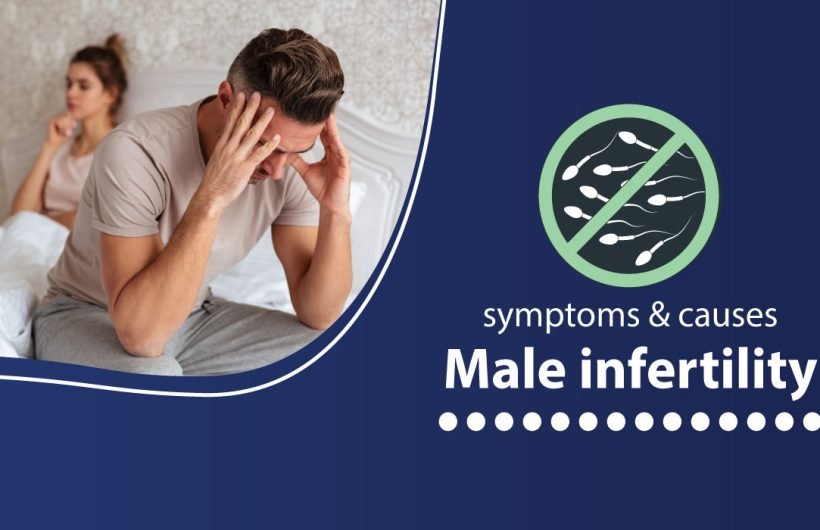Since they haven’t been able to have a child while engaging in frequent, unprotected sexual activity for a year or longer, nearly one in seven couples are infertile. To some extent, up to half of these couples are affected by male infertility.
Male infertility is a condition that can be stressful and distressing, but there are several therapies available. It can be caused by low sperm production, impaired sperm function, or blockages that prevent sperm from reaching the uterus. Male infertility may be brought on by illnesses, accidents, chronic health issues, lifestyle choices, and other circumstances.
Symptoms
The inability to conceive a child is the main symptom of male infertility. There might be no other overt symptoms or indicators.
However, in certain circumstances, signs and symptoms are caused by an underlying issue, such as an inherited ailment, hormonal imbalance, dilated veins around the testicle, or a condition that prevents sperm from passing through.
Observable symptoms and signs include:
- Issues with sexual function, such as the inability to ejaculate or only to produce tiny amounts of fluid, diminished sexual desire, or difficulties maintaining an erection (erectile dysfunction)
- A lump, ache, or swelling around the testicles
- persistent respiratory illnesses
- A lack of smell
- Unusual breast development (gynecomastia)
- Loss of face or body hair, as well as other chromosomal or hormonal abnormalities
- A sperm count that is below average (fewer than 15 million sperm per milliliter of semen or a total sperm count of less than 39 million per ejaculate)
Causes
The process of male fertility from Male infertility is intricate. The following must happen for your partner to become pregnant:
- You need to create healthy sperm. This initiative relates to the development of the male reproductive system during puberty. Your body must create testosterone and other hormones to start and maintain sperm production, and at least one of your testicles must be healthy.
- Sperm must be transported into the semen. After sperm are created in the testicles, they are transported through delicate tubes until they combine with semen and are expelled from the penis.
- The semen must contain an adequate amount of sperm. The likelihood that one of your sperm will fertilize your partner’s egg lowers if there are few sperm in your semen (sperm count). Less than 15 million sperm per milliliter of semen constitutes a low sperm count.
- Sperm needs to operate and be mobile. Your sperm may not be able to enter or pierce your partner’s egg if its motility or function is faulty.
Health, lifestyle, and other causes
Male infertility can also be brought on by:
- Drug use: Testicles can contract, and sperm production can fall when anabolic drugs used to increase muscle strength and growth are consumed. The quantity and quality of your sperm may also briefly decline if you use cocaine or marijuana.
- Alcohol consumption: Alcohol use can reduce testosterone levels, lead to erectile dysfunction, and reduce sperm production. Fertility issues could result from excessive drinking-related liver damage.
- Smoking tobacco: Men who smoke may have lower sperm counts than non-smokers. Male fertility may also be affected by secondhand smoke.
- Weight: Obesity can affect sperm directly and through altering hormones, which lower male fertility, among other ways, affecting fertility.
When to see a doctor
Consult a urologist if any of the following applications and you haven’t been able to conceive after a year of consistent, unprotected sexual activity or earlier:
- Low sex drive, issues with erection or ejaculation, or other issues with sexual function
- Testicle area ache, pain, bulge, or swelling
- a background of testicular, prostate, or sexual issues
- a scrotum, penis, testicles, or groyne operation
- A spouse older than 35
You can approach Dr. Saket Narnoli for a smooth treatment for male infertility. He is a well-known urologist in Dhanbad, Jharkhand, known for treating patients with the utmost care and following proper protocols.






